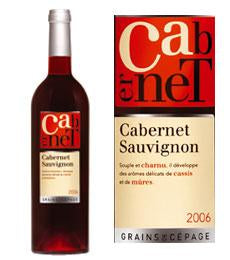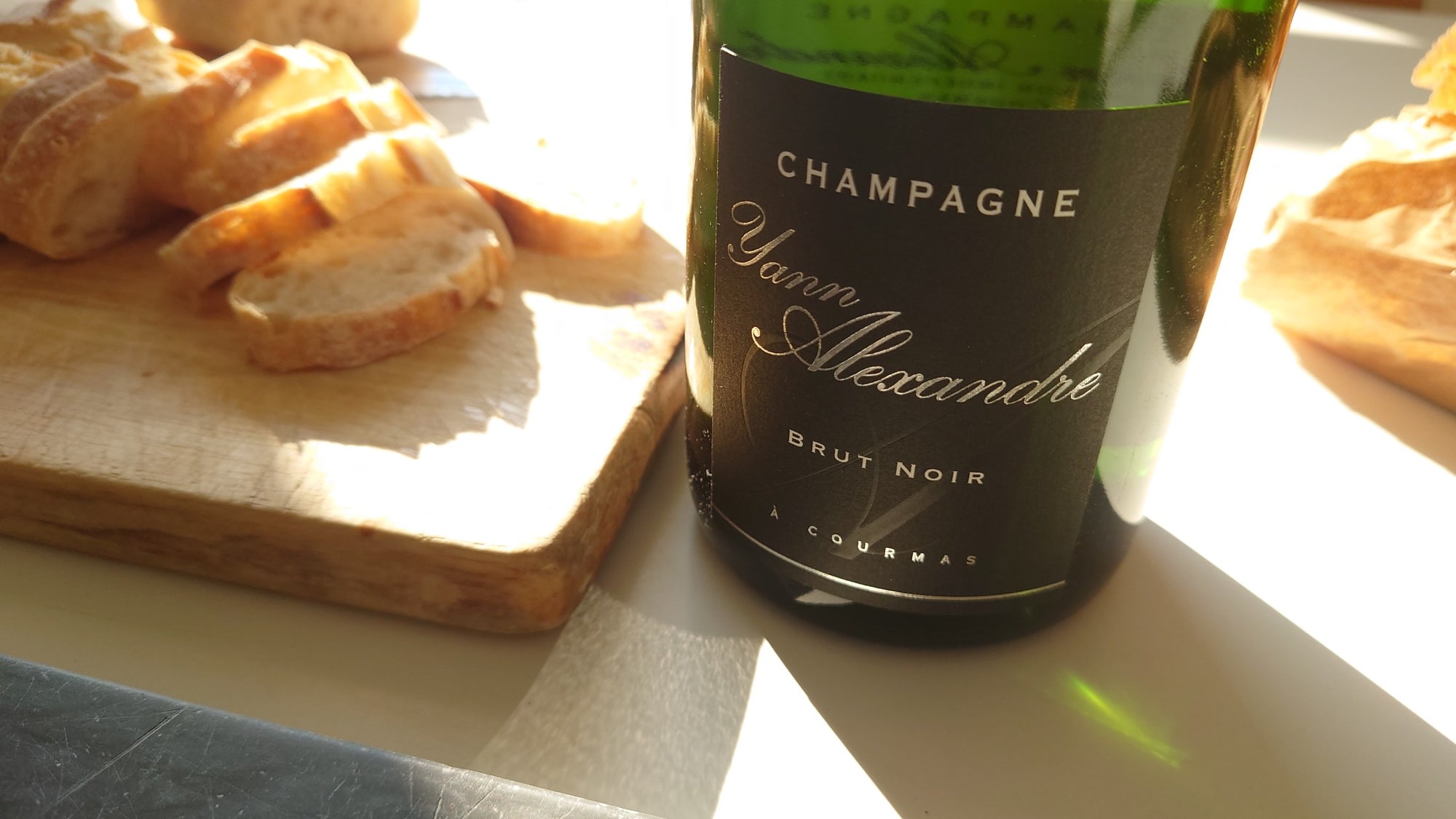
Is it Cabernet Sauvignon or cabernet sauvignon?
The New York Times and Slate.com don’t capitalize the names of grape varieties but practically everyone else does. What, then, is the correct usage?
This may seem a little geeky or pedantic but it’s important for anyone who writes about wine. I seem to revisit this question every couple of years without satisfaction.
byThis year, however, I believe I finally have the answer thanks to some online research and a series of emails with Tyler Colman AKA Dr. Vino. Since neither Tyler or I have the book, the assumption is that the New York Times Manual of Style and Usage says not to capitalize grape variety names. Thus not knowing what they base their no-caps decision on, we turned instead to Wikipedia to investigate naming conventions in botany and found some interesting things: from the Variety (Botany) page:
In viticulture, what is referred to as "grape varieties" are in reality cultivars rather than varieties according to usage in the International Code of Nomenclature for Cultivated Plants, since they are propagated by cuttings and have properties that are not stable under sexual reproduction (seed plants). However, usage of the term variety is so entrenched in viticulture that a change to cultivar is unlikely.Ok, since it’s actually a cultivar, I went to the Cultivar page to see how they’re named:
A cultivar name consists of a botanical name (of a genus, species, infraspecific taxon, interspecific hybrid or intergeneric hybrid) followed by a cultivar epithet. The cultivar epithet is capitalised and put between single quotes: preferably it should not be italicized. Cultivar epithets published before 1 January 1959 were often given a Latin form and can be readily confused with the specific epithets in botanical names: after that date, newly coined cultivar epithets must be in a modern vernacular language to distinguish them from botanical epithets. Cryptomeria japonica 'Elegans' Chamaecyparis lawsoniana 'Aureomarginata' (pre-1959 name, Latin in form) Chamaecyparis lawsoniana 'Golden Wonder' (post-1959 name, English language) Pinus densiflora 'Akebono' (post-1959 name, Japanese language)
The technically correct nomenclature for a grape variety would then be: Vitis vinifera ‘Cabernet Sauvignon’.
It would be unnecessarily pedantic to include Vitis vinifera each time we write about grape varieties so what then is the proper way to condense the name? Should they be capitalized or not?
Based on this research, I’m going to continue to capitalize grape varieties. If it’s good enough for Jancis Robinson, Hugh Johnson, Robert Parker, Maynard Amerine and Emile Peynaud, it’s good enough for me. Tyler (a die hard New Yorker), however, isn't swayed by this evidence and will continue to not capitalize grape names along with the Times.
What do you think? Cabernet Sauvignon or cabernet sauvignon?



Comments
Doug – In this case, you’re right, language does follow the scientists. The problem is that ampelographers (people who study grapevines) in French use no caps and in English, caps.
Kerith – your title is much better than mine – How Proper is Your Pinot? – on this overwrought subject.
Late, but hopefully useful
I have looked at all the English style guides that mention grapes
Genus is capitalised, species is not
Grape variety names are capitalised
So it is Vitis vinifera and Cabernet Sauvignon
I have no idea what non-English speakers ( such as the French ) have for their rules
But all the English ( well at least British and Australian ) are very clear
Mark
I prefer uncapitalized.
Coming to this very late, but there is a further missed distinction. Different grape cultivar names are capitalised, but be careful what is the name of the cultivar. Cabernet Sauvignon is a cultivar, as is Pinot. The latter cultivar comes with different coloured grapes, which are distinguished with descriptors (in this case mostly grape colour), and descriptors are not capitalised. Therefore, if you want to be VERY correct, Cabernet Franc, Sauvignon blanc, and Pinot gris, or properly Vitis vinifera ‘Pinot’ noir. Cheers
Hi James,
Thank you for the late comment, which is aptly the final word.
The University Wine Course: A Wine Appreciation Text & Self Tutorial, which I had to purchase to go along with my enology course at Santa Rosa Junior College (excellent wine program, given the local talent for teaching), written by Ph.D. Marian W. Baldy – also used at UC Davis as a text book…
Look up any cultivar/variety (the synonym noun, with variety being an adjective) and you’re going to find it in capitalization.
I won’t be changing what I do or how I write cultivars any time soon, but an interesting read and subsequent thoughts.
Yes, Capitalized. They are propper names.
Question: What is the accepted rule for cheese varieties. Should it be Feta cheese, feta cheese, simply, Feta, or should it be feta?
Sincirely, Eleni Fourtouni
hairs can be split even further on this topic (as I translate a guide to wines from Spanish into English)… in two-worded grape variety names, should only the first word be capitalized or both, or does it depend on the characteristics of the variety name. for instance, with Cabernet Sauvignon seems to be obvious to capitalize both, because Sauvignon seems like its origin is as a surname or region name (not going to look that up, sorry!), whereas with “Pinot noir” i feel an enormous urge to put “noir” in lowercase, due to some ‘je ne sais quoi’…. despite this urge, i think i will just capitalize everything for purposes of consistency. here is a list of dozens of varieties, which is also inconsistent! almost all capitals, but then you will find the occasional second word uncapitalized (increasing my anguish!) good luck
Hmmm… most interesting. If you’re talking about the plants themselves, all of the discussion regarding official botanical nomenclature is spot on. But the glorious juice is not a plant and therefore plays by different rules, no? I’m going to split the baby and use both caps and non-caps just to keep things interesting ;)
Like the discussion. What about nicknames? Like cab or pinot. Surely we aren’t capitalizing zin? But, Pinot Noir. Perhaps context is important. Like dad. If you are addressing your father or the royal Pinot, they are Father. But when we casually speak of dads or cabs, we’re not going to capitalize. I’m just shooting from the hip, but I would imagine capitalization was traditionally less rigorous than it has been over the past century. I would argue there is value in having flexibility in certain capitalizations and not being restrained by fixed rules. obviously that Flexibility has limited Merits.